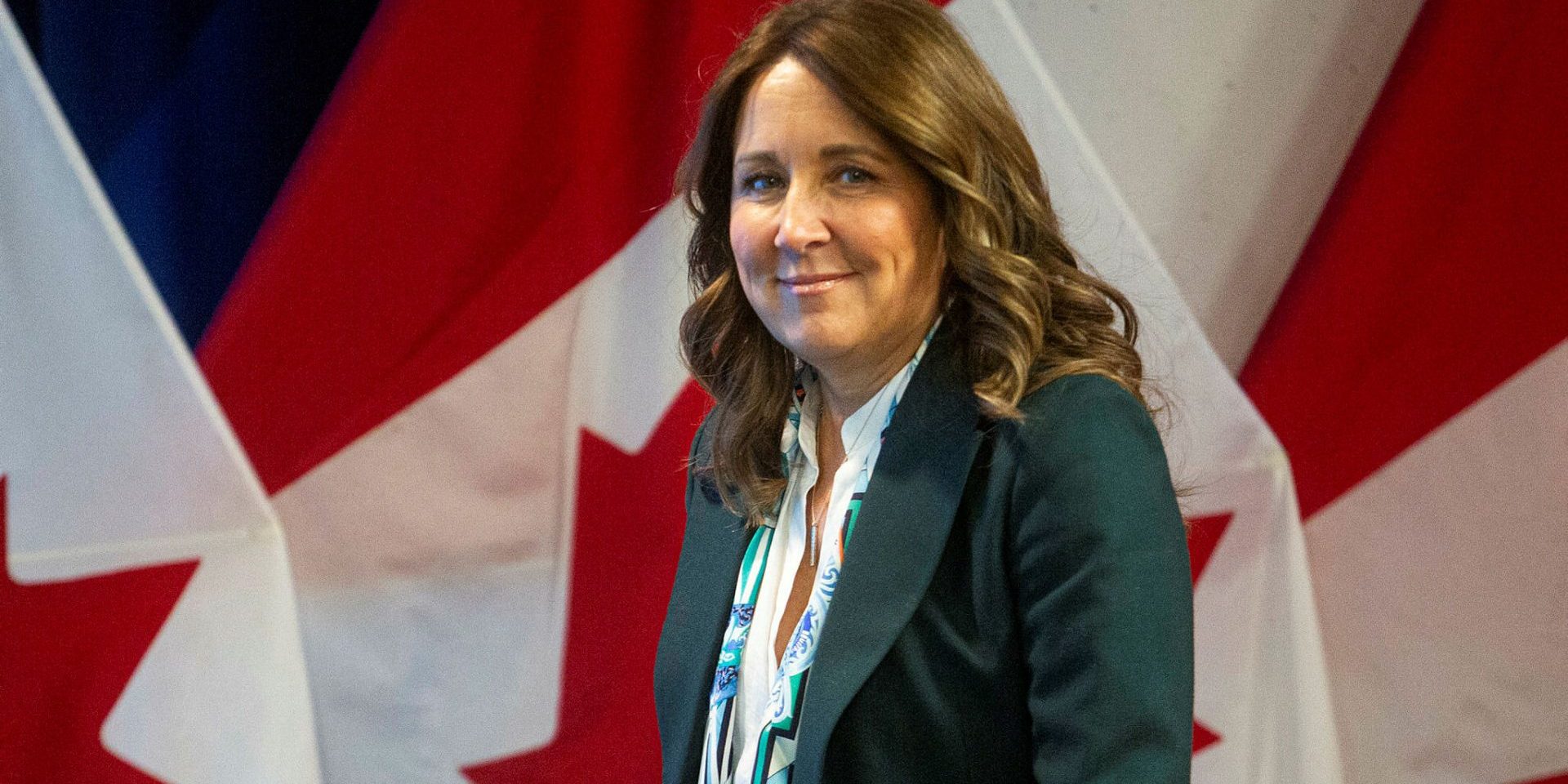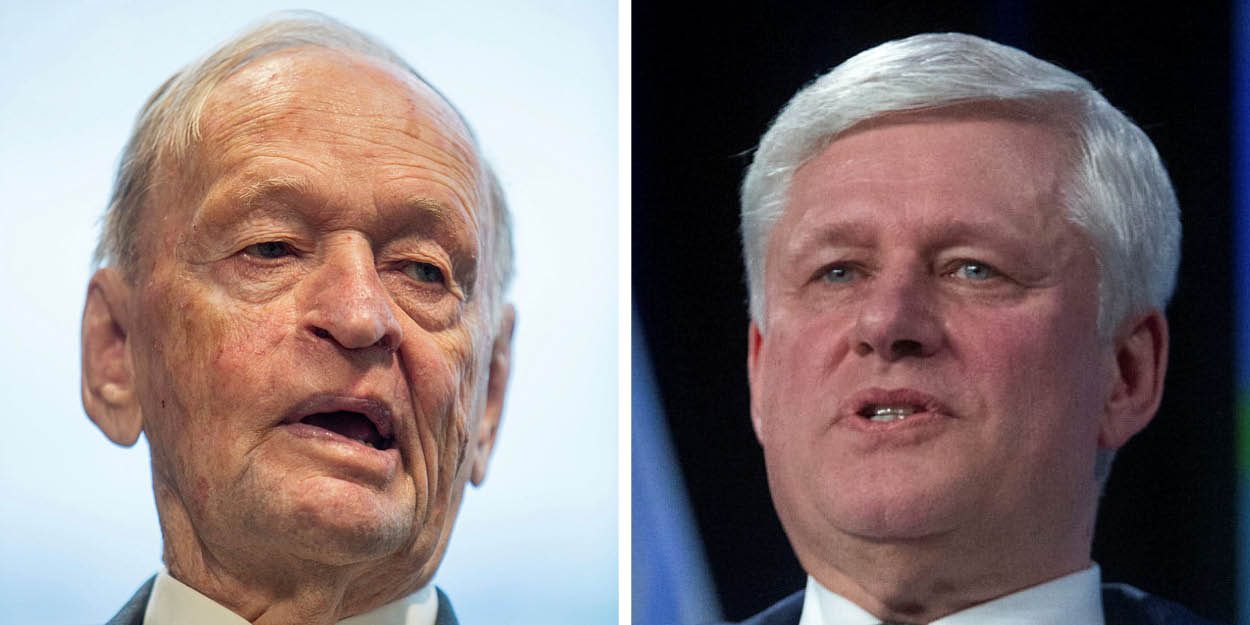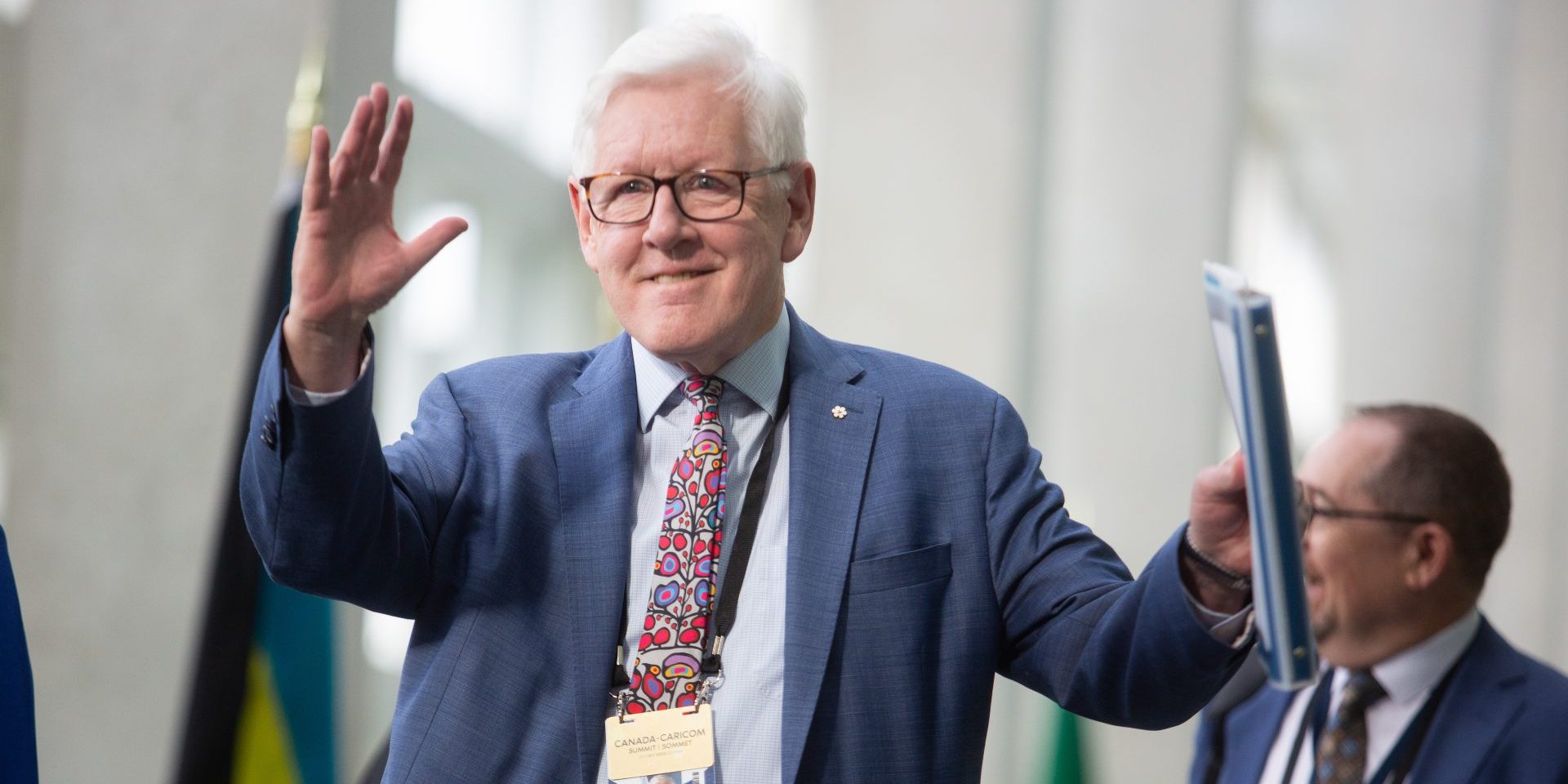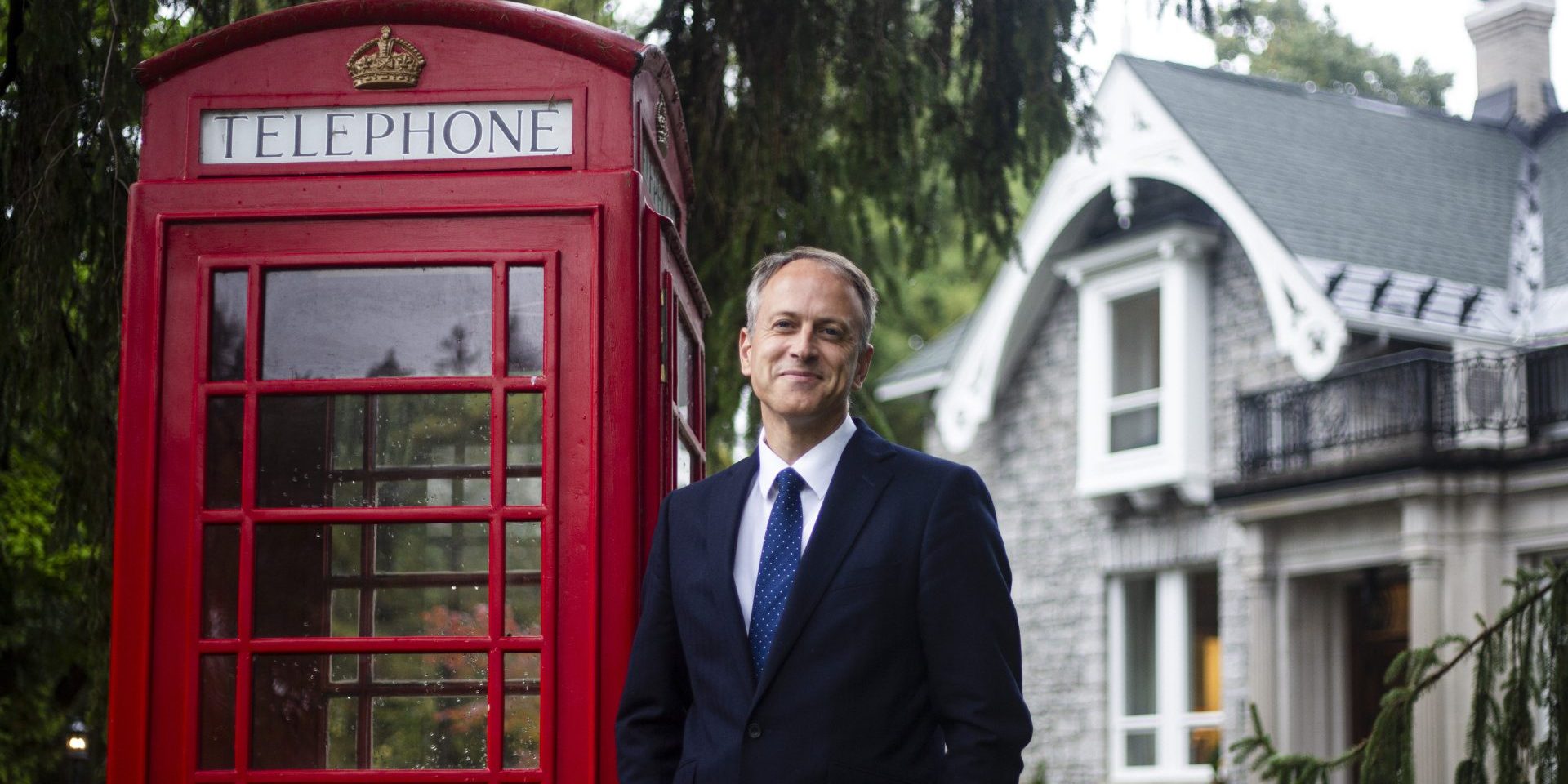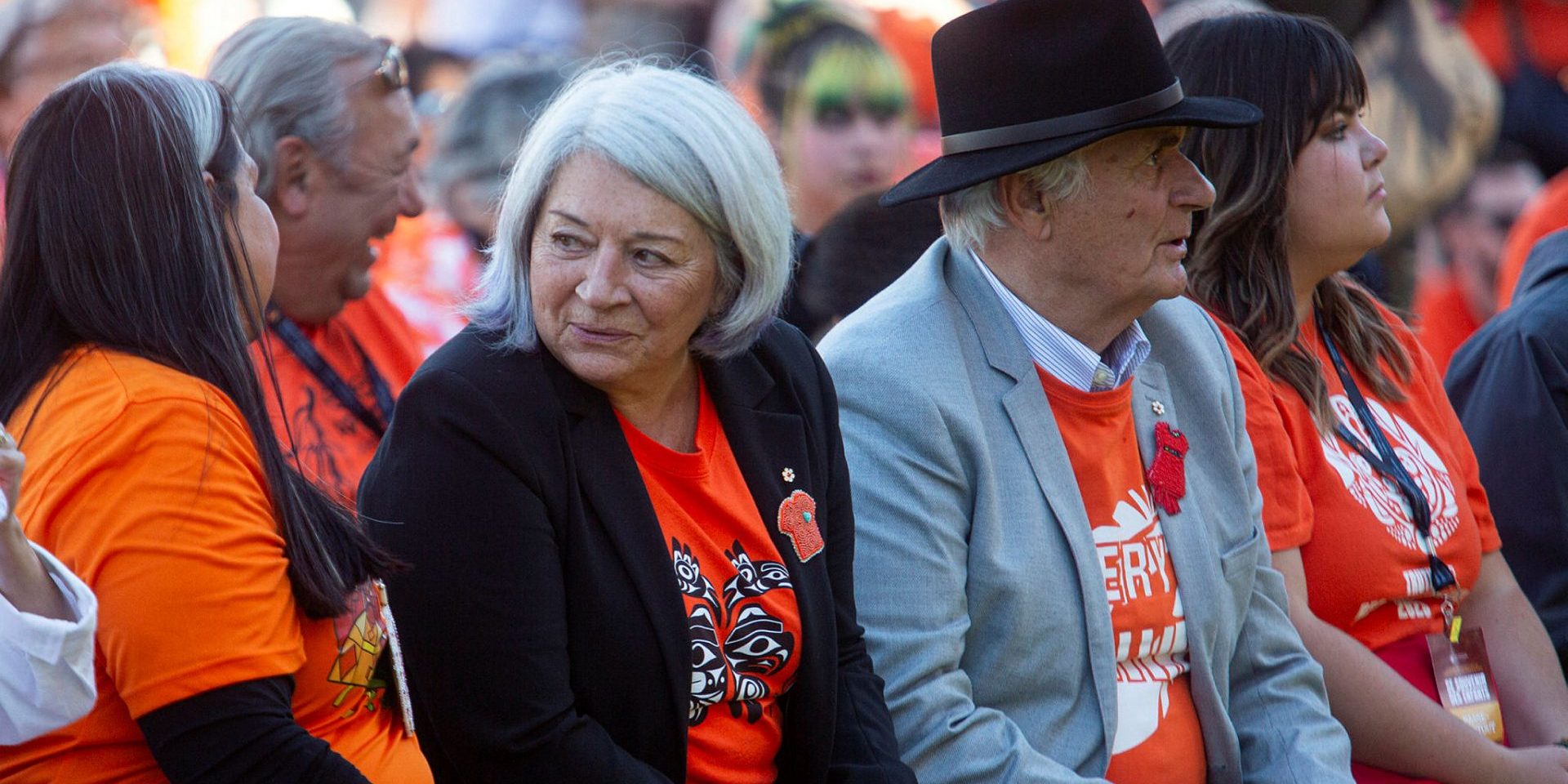Politics This Morning
And we’re off—election campaign 2025 is underway
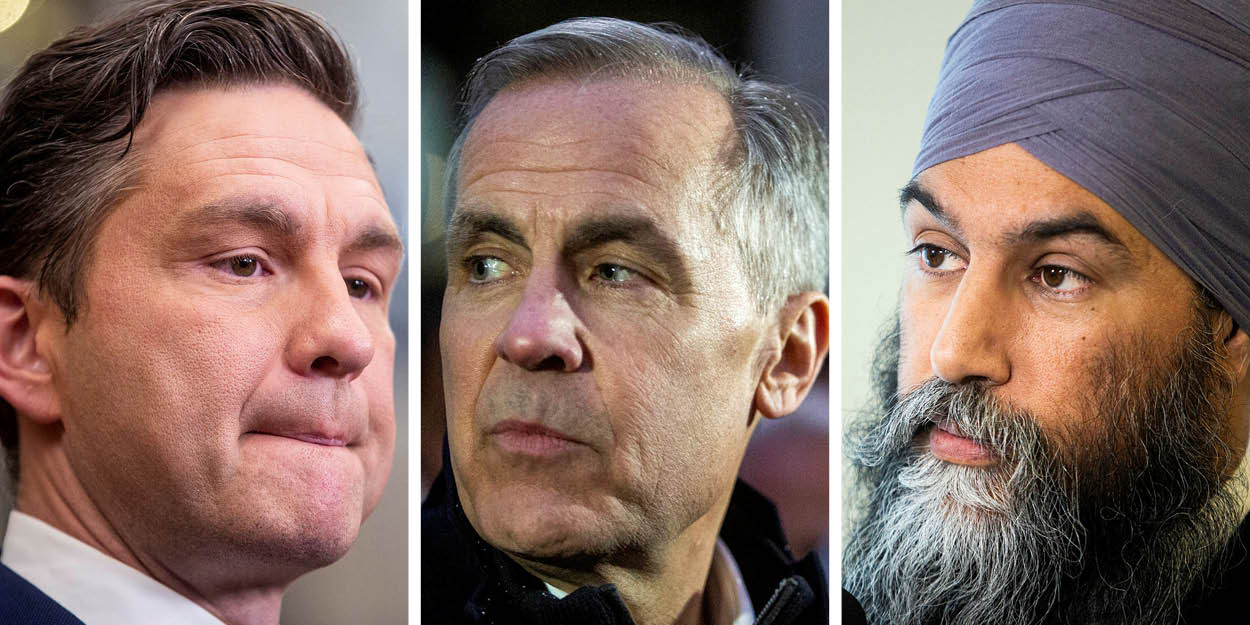
Good Monday morning,
In today’s Politics This Morning:
- Where the parties stand in the polls as they enter the campaign.
- Climate activists assemble on the Hill.
- Air Canada president lays out the carrier’s plans for the future.
Buckle up, Canada. Democracy just called, and it wants you to show up on April 28 to cast your vote in the general election.
Canada just got a new prime minister and a new cabinet about a week ago, but voters have yet to give their blessing. Now they will have their chance to decide if MARK CARNEY gets to stay in the top job, or go down in history as Canada’s shortest-serving prime minister. The folks in Ottawa’s Nepean riding will also decide whether Carney becomes a Member of Parliament.
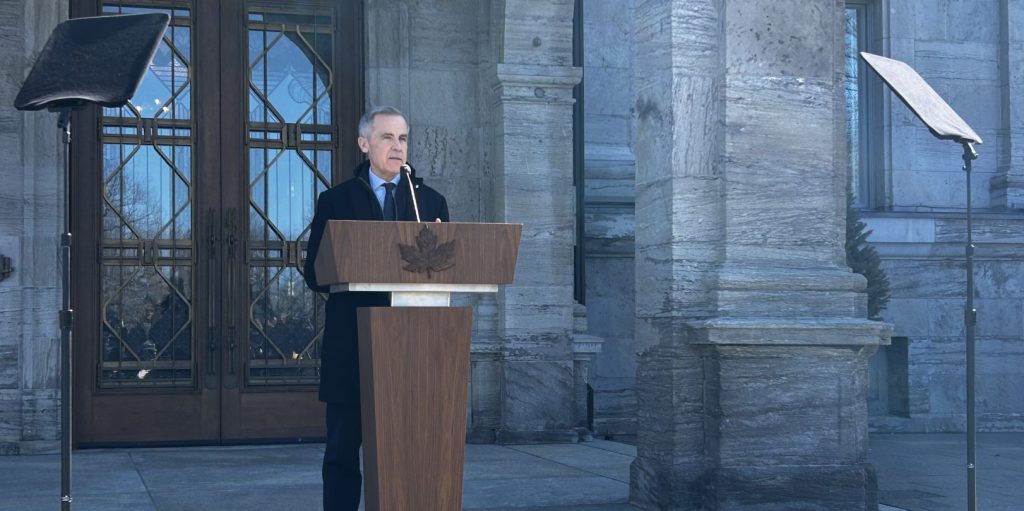
April 28 is the National Day of Mourning for workers who lost their lives from workplace injuries and diseases. Symbolically, this election will be important for workers who are at the receiving end of the blow caused by U.S. President DONALD TRUMP’s tariffs.
It is also National Superhero Day, apparently: a celebration of the heroism in everyday people. And, an oddly specific National Blueberry Pie Day.
Prime Minister Carney wasted no time yesterday in setting out his priorities yesterday while announcing the date of the election at Rideau Hall. Those include standing up to Trump and his trade war as the top focus, and getting the Canadian economy back on track. He momentarily echoed his opponent, Conservative Leader PIERRE POILIEVRE, in remaking that life has been more expensive in recent years.
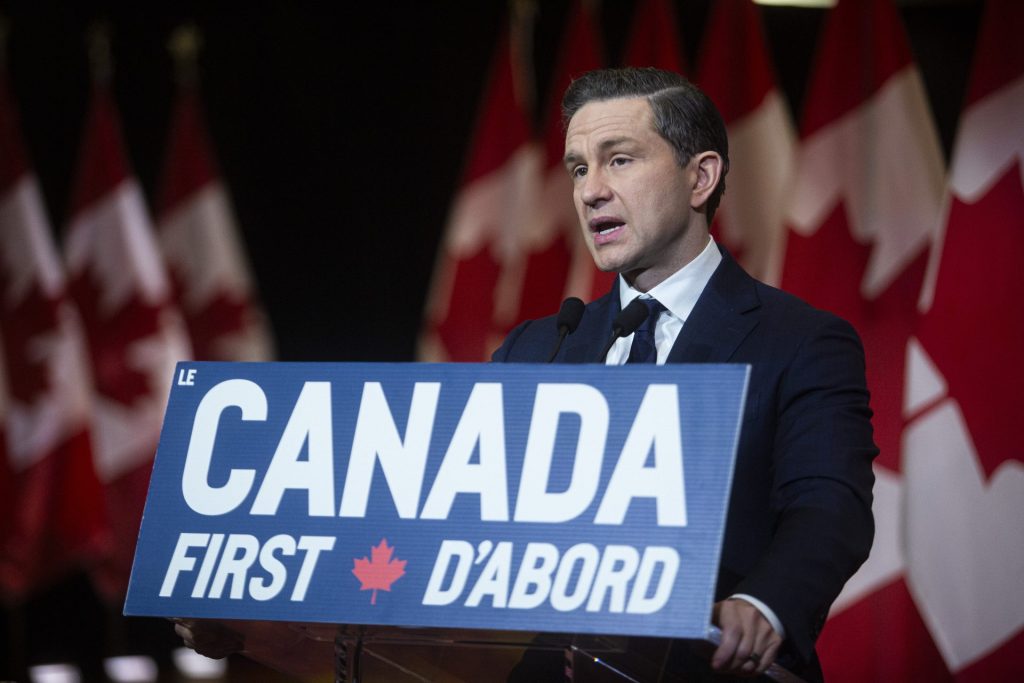
“It’s easy to be negative about everything if you’ve never fixed anything,” he said, taking a shot at Poilievre. Carney pitched himself as the best man for the job of fixing things in the country, and claimed he has the expertise to do it. To start, he promised to give a one per cent tax cut to Canadians in the lowest tax bracket. His full speech, for anyone who missed it, can be watched here.
In his own campaign launch yesterday, Poilievre said that “a Liberal is a Liberal is a Liberal”, and blamed Carney and the party he leads for having broken everything.
The NDP’s JAGMEET SINGH kickstarted his bid to be the prime minister by framing himself as the leader of the working class—someone who is not in it for the billionaires.
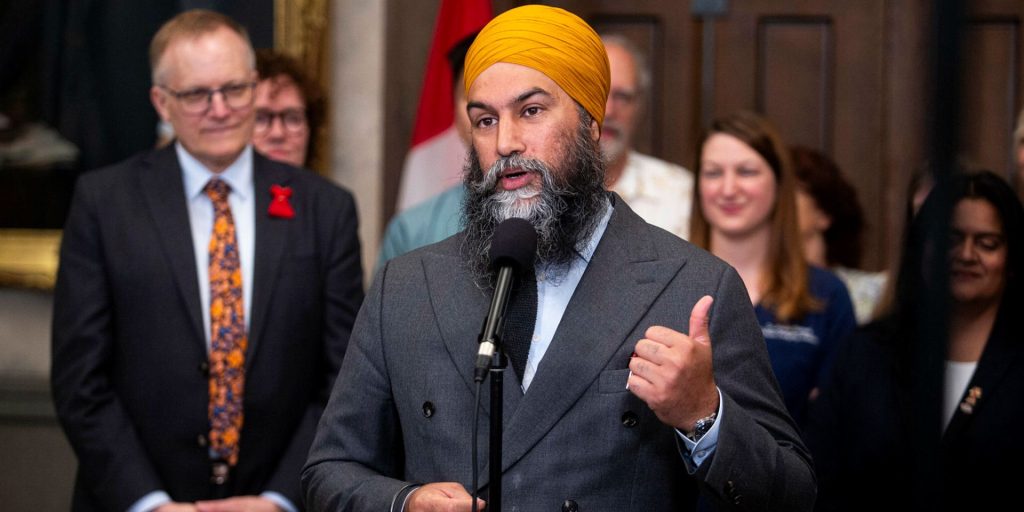
The Greens, headed by co-Leaders ELIZABETH MAY and JONATHAN PEDNEAULT, proposed taxing the rich and bringing “Canada to Ottawa.” Pedneault recounted his experience of having witnessed the war zones in Ukraine, Libya and elsewhere, and seeing what “collapse looks like.”
Bloc Québécois Leader YVES-FRANÇOIS BLANCHET too held a press conference in Montréal to announce his party’s vision for the election. When asked if he was concerned about the Liberals eating into his party’s vote share in the province, Blanchet remarked in French that the “Bloc belongs to no one” and “votes belong to the voters.”
The Hill Times’ STUART BENSON and ABBAS RANA have covered the events from yesterday in their story here.
Where do the parties stand in the polls?
As is widely known, the Liberals have made a historic comeback in public opinion polls after crashing to perilous lows just a few months ago. Social media is replete with memes on their resurgence, attributing it to Mark Carney’s entry in the race and President Donald Trump’s threats to annex Canada.
National polls still aren’t unanimous about a Liberal lead, however. Yesterday, Abacus Data released the results for its latest survey, conducted between March 17 and 20, and found Poilievre’s party to be three points ahead of the Liberals overall. The Tory leader’s net impression was reported as -8, however, compared to +12 for Carney (and -13 for Singh). More respondents (about 38 per cent) said they preferred Carney as the prime minister than Poilievre (34 per cent).
The Liberals and Conservatives were found to be in a tight race in Ontario, with Poilievre leading in B.C., Alberta and the Prairies. Carney’s crew was leading in Quebec and Atlantic Canada, with more women respondents in favour of the Liberals than men. Read the full report here.
Another survey by Nanos Research released on March 18 had the Conservatives at 35 per cent support, the Liberals at 34, and the NDP at 16 points.
The popular vote won’t decide the outcome of the election, however, and the Liberals seem likely to benefit once again from a more efficient spread of their voters.
Projections from 338 Canada, updated yesterday, painted the most favourable picture for the Liberals, placing them in position for a majority government, trending toward 178 seats, compared to 131 for the Conservatives.
An Angus Reid Institute poll released on March 17 had the Liberals five points ahead, and in majority territory.
Whether or not you believe the axiom that “campaigns matter”, it’s clear that events do. Nothing has been decided just yet, so stay tuned loyal reader. The campaign is finally on.
The 45th federal election could cost $536-million to run, as per Elections Canada data
Elections Canada estimates that the general election will cost taxpayers about $536-million.
A spokesperson for the agency shared the data with Politics This Morning yesterday. With an estimated 28.8-million electors able to participate, the cost per elector would be $18.61, as per these projections.
This is a decrease from the 2021 general election’s estimated delivery cost of $574-million (at 2025 prices) for 27.51-million registered electors. This was a Covid-19 year, however, and Elections Canada had to bear extra costs for pandemic precautions.
In 2019, this number was $492-million at current rates, for 27.4 electors.
The agency reports a breakdown of costs incurred on actual election activities like renting polling stations, hiring staff, etc. It reimburses a portion of election expenses to candidates that get at least 10 per cent of the vote in their electoral district, and to the registered parties if they win at least at least two per cent of valid votes nationally, or five per cent of the votes in electoral districts where they have candidates. It also spends millions of dollars on preparation activities for the election before the writs are issued.
If the numbers were to be considered in absolute terms, without adjusting for inflation, the total costs over the years is as given in the chart below.
The big increase in the costs in 2015 was partly due to the campaign period being 78 days, the longest in recent years, and some service improvements made by Elections Canada towards accessibility and other compliance, according to the agency. The number of electors also went up from 24.26-million in 2011 to 25.94-million in 2015.
In the news
More on Federal Election 2025: Pollster FRANK GRAVES tells Abbas Rana why this election is the “most consequential” in Canadian history.
Election 3.0: Abacus Data’s DAVID COLETTO shares that the Liberal voter pool is still “volatile” and Carney must keep his numbers steady in the coming weeks if the Liberals want to win. STEPHEN JEFFERY has more.
Poilievre’s dilemma: CHRISTOPHER GULY writes about the Conservative leader’s tricky balance between keeping MAGA support and aligning with anti-Trump sentiment in Canada.
A lobby roundup: JESSE CNOCKAERT and SERGIY SLIPCHENKO have put together a list of the top 100 lobbyists in 2025. Read it here.
Heard on the Hill: CHRISTINA LEADLAY gives a lowdown on the latest and notable happenings in the world of the Hill, outside of the elections.
The Hill Times’ Hot Room podcast: PETER MAZEREEUW interviews an expert in government finances about Carney and Poilievre’s plans to cut wasteful spending in government, and more. Give it a listen here.
Where the leaders are today?
Prime Minister Mark Carney is holding an election rally in St. John’s, N.L. today.
Conservative Leader Pierre Poilievre is holding a press conference in Brampton, Ont., at 10 a.m.
Green Party co-Leader Elizabeth May is campaigning in her riding of Saanich Gulf Islands in B.C., and Jonathan Pedneault is doing the same in Outremont, Que.
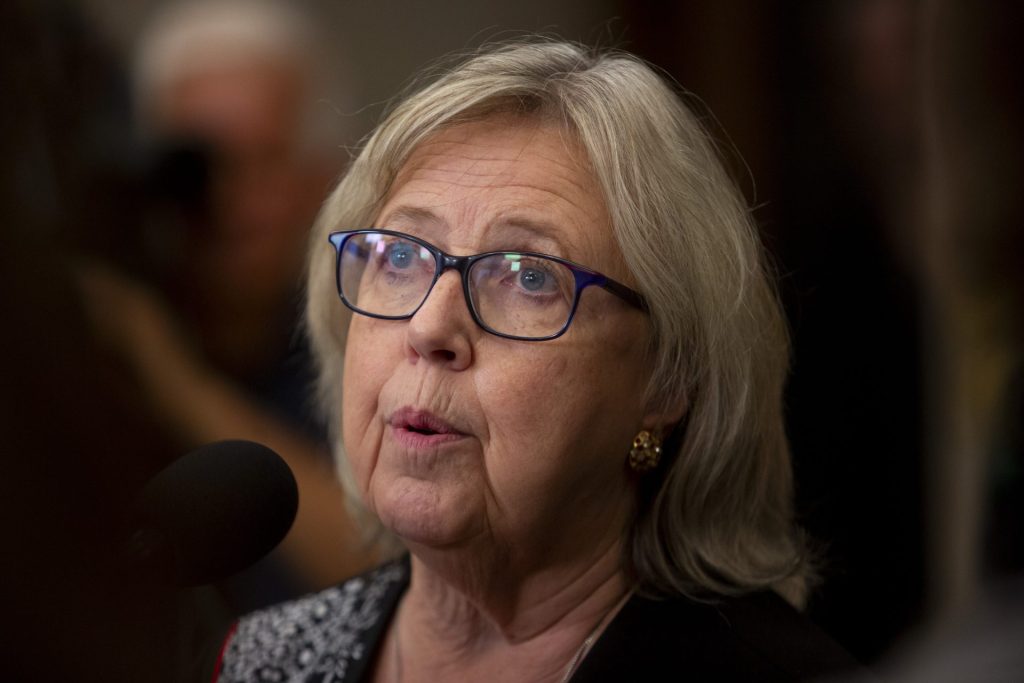
The other party leaders will also likely be out and about, campaigning for seats, but their itineraries were not sent to media by deadline yesterday evening.
What else is happening today?
Elections Canada to host a technical briefing
The federal election agency’s experts will speak to the media about the changes that are being made for the 45th general election at 10 a.m. in Ottawa’s National Press Theatre.
This will be followed by an 11 a.m. press conference by the chief electoral officer, STÉPHANE PERRAULT, about the services that Elections Canada provides to voters.
Climate activists gather on the Hill
At 11:30 a.m., a coalition of climate groups will come together at Parliament Hill to call for all federal parties to commit to “climate action” in their campaigns.
Air Canada president speaks about the company’s future
MICHAEL ROUSSEAU talks about the carrier’s vision for the coming years at an event by Canadian Club Toronto in the city at 11:45 a.m.
In case you missed it
Smith asks Trump’s team to pause the tariff rhetoric to help elect Poilievre
Alberta Premier DANIELLE SMITH came under fire yesterday after an audio clip resurfaced of her interview with right-wing U.S. media outlet Breitbart, in which she claimed she had spoken to Trump officials about pausing the tariffs on Canada for the time being, as standing up to Trump was helping Liberals. Smith is now being accused of enlisting the U.S. administration to interfere in Canada’s elections. CTV News has more on it here.
Carney to run in Ottawa’s Nepean riding after Liberals disqualify Arya
Three-term Liberal MP CHANDRA ARYA had his candidacy in Nepean revoked by the party, and he was replaced there with Mark Carney. Arya said on X that the decision was “deeply disappointing” and that he had “given his heart and soul” to the role. The Toronto Star has covered the story here.
Arya isn’t the only MP who is now not running in the election. Edmonton MP RANDY BOISSONNAULT also revealed recently that he has decided to not run again.
Tell us what you think of Politics This Morning. Send your feedback to pmazereeuw@hilltimes.com and rkachhela@hilltimes.com






 LICENSING
LICENSING PODCAST
PODCAST ALERTS
ALERTS